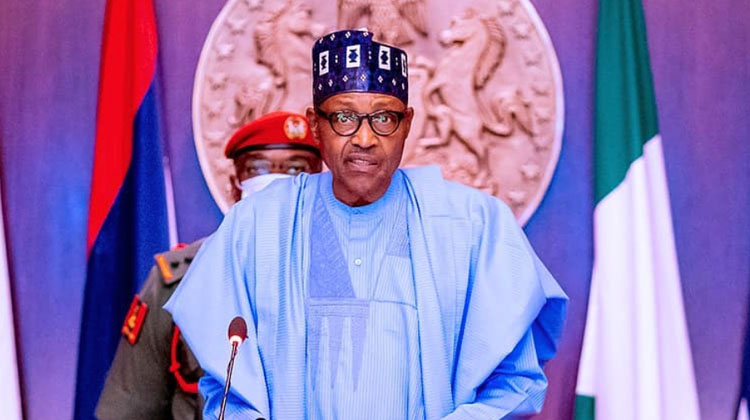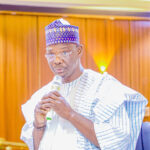Media practitioners and Civil Society Organisations (CSOs) have called for end to violence against journalist, other media practitioners and sustainability of press freedom in the interest of the society and citizens.
They made the call on Tuesday in Abuja at a media/CSOs roundtable in commemoration of the United Nation’s (UN) 2021 International Day to End Impunity (IDEI) for Crimes Against Journalists, held globally on November 2.
- World Press Freedom Day: A call to save journalism
- State governors as threats to press freedom in Nigeria
It was organized by the International Press Centre (IPC), Lagos-Nigeria in collaboration with the British Council/EU-ACT, as part of activities contributing to safety and independence of journalists and to enable the nurturing of media viability in Nigeria.
The roundtable in Abuja discussed “Countering Threats of Violence Against Journalists, The Role of CSOs and Other Non-state Actors”.
In his opening remark, the Executive Director of the IPC, Mr. Lanre Arogundade, said the key objective of the programme is to examine the important role that CSOs and other non-state actors could play in defending press freedom in general; and particularly, in curbing the menace of violence or threats against journalists and other media professionals.
He said CSOs and non-state actors including various professional groups, trade unions, academics, etc., are critical voices that should be heard on the issue of safety of journalists.
Arogundade said, “It is often a matter of irony that individuals and groups that regularly harp on the role that the media should play in democracy and development, usually keep mute when the same media comes under attack as it has often been the case.”
He also said that this year’s theme highlights the psychological trauma experienced by journalists who are victims of threats and also raises awareness on the importance of investigating and prosecuting those responsible in order to end impunity for such crimes.
He therefore called for collaboration between the media, CSOs and other non-state actors to develop an Action Plan on defending press freedom and engaging state institutions including security agencies to achieve the objectives.
He said, “CSOs should publicly condemn acts of violence against journalists and the media – offline and online – and seek for justice and compensation for the victims.”
On his part, the EU-ACT National Programme Manager, Damilare Babalola, said the European Union supported the implementation of the programme to provide a platform for civil society groups and other stakeholders to reflect, ponder and resolve on how to ensure that the journalism profession is considered as part of the broader concept of civil society and as a worthy practice so that practitioners remain free from all forms of threats and violence.
The Chairman of the event, Prof. Umaru Pate, said journalists’ safety must remain paramount to the state, lamenting that he had lost six journalists whom he helped train at the University of Maiduguri and Bayero University Kano to insurgents.
He said insecurity in the country has negatively impacted the atmosphere journalists operate in the country.
“By the nature of what we do, we are unnecessarily exposed to potential enemies, those who see our activities as endangering their own way of life. So, naturally we are targets.
“But we have the constitution protecting us and other international regulations protecting us even though that has not stopped journalists from being harassed,” Pate said.
Prof. Pate, who is also the Vice Chancellor, Federal University Kashere, Gombe State, noted the importance of improve welfare of journalists.
He said, “You cannot talk about ending impunity, when journalists live a life of poverty and penury with no retirement plan.”
Also, a representative of the EU delegation in Nigeria, Ms. Winifred Achu, said the EU is keen to support increased protection of journalists during demonstrations, online safety and support to female journalists.
She said, “With free journalism under increasing pressure, the European Union is determined to support press and media freedom worldwide and assist journalists politically and financially.”
She also noted that the EU’s assessment is that journalism in Nigeria remains one of the most vibrant in Africa.
She said, “We have trust in the Nigerian journalists. We admire your courage as you continue reporting even in hostile conditions and to promote peace and democracy.”
Meanwhile, the President of the Nigerian Union of Journalists (NUJ), Mr. Chris Isiguzo, lamented the frightening condition journalists work.
Quoting figures of journalists that were killed globally, he said “Clearly, this portrays the real situation journalists find themselves in worldwide. This is an opportunity to bring to the fore the situation with media practice.
“Granted we have a democracy, but there are unique ingredients of a working democracy including a free press and respect for rule of law; and these are missing. I want to appeal to our political actors, media practitioners and journalists, we are all stakeholders and if this system must work for us, we must operate without unnecessary encumbrance.
“If we want democracy to continue to thrive, media practice must be given free hand to thrive.”
Delivering the keynote on the theme, “Countering threats of violence against journalists in Nigeria: The role of CSOs and other Non-State Actors” a professor of mass communication at the University of Jos, Victor Aluma-Ayedun said that what journalists do is often not in sync with what journalists say they do.
He said that journalists, who have an indispensable role to play, are under pressure around the world, with governments at times attempting to silence journalists who scrutinize their actions too closely.
He said, “Ending impunity for crimes against journalists is one of the most pressing issues to guarantee freedom of expression and access to information for all citizens.”

 Join Daily Trust WhatsApp Community For Quick Access To News and Happenings Around You.
Join Daily Trust WhatsApp Community For Quick Access To News and Happenings Around You.


